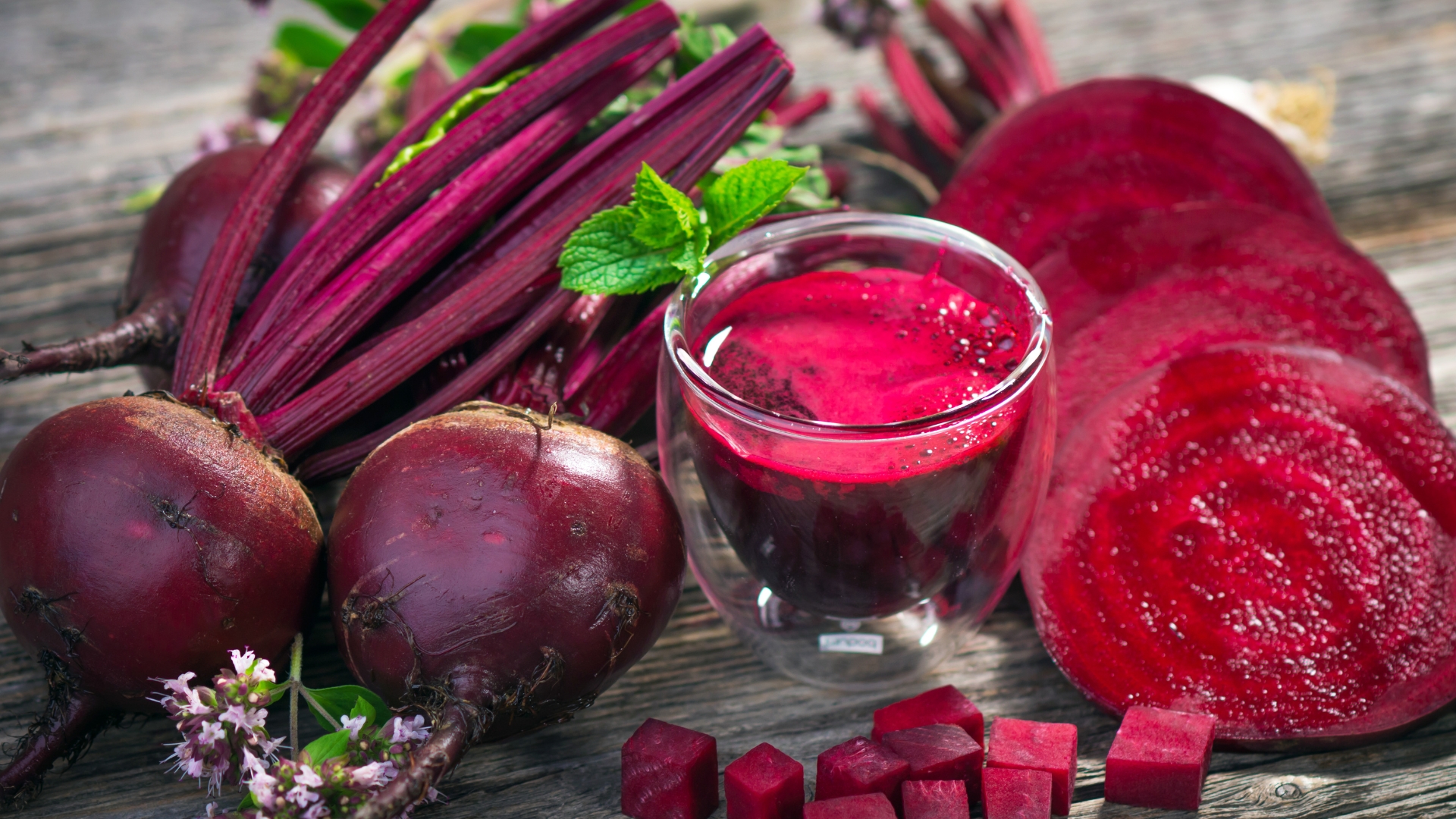
Beetroot, also known as Beta vulgaris, is a nutrient-dense root vegetable that has gained popularity for its health-promoting properties. Beyond its vibrant color and earthy taste, beetroot is classified as a functional food due to its ability to provide health benefits beyond basic nutrition. Functional foods contain bioactive compounds that may reduce the risk of chronic diseases and improve overall well-being.
Table of Contents
Nutritional Profile of Beetroot
Beetroot is rich in vitamins, minerals, and antioxidants. Key nutrients include:
-
Vitamins: Vitamin C, folate (vitamin B9), and vitamin A.
-
Minerals: Potassium, manganese, magnesium, and iron.
-
Bioactive Compounds: Nitrates, betalains, flavonoids, and phenolic acids.
-
Fiber: Beetroot provides dietary fiber, which supports digestive health.
These nutrients work together to enhance cardiovascular health, reduce inflammation, and improve metabolic functions.
Cardiovascular Benefits
One of the most well-researched benefits of beetroot is its positive effect on heart health. Beetroot is naturally high in nitrates, which the body converts into nitric oxide. Nitric oxide helps relax and dilate blood vessels, improving blood flow and reducing blood pressure. Regular consumption of beetroot juice has been shown to lower systolic and diastolic blood pressure, reducing the risk of hypertension and cardiovascular diseases.
Athletic Performance and Stamina
Beetroot is often considered a performance-enhancing food for athletes. The nitrates in beetroot improve oxygen utilization in muscles during exercise, increasing stamina and reducing fatigue. Studies have demonstrated that beetroot supplementation can enhance endurance, allowing athletes to train harder and longer.
Anti-Inflammatory and Antioxidant Properties
Beetroot contains betalains, a group of pigments with strong antioxidant and anti-inflammatory properties. These compounds help neutralize free radicals, reduce oxidative stress, and protect cells from damage. By lowering inflammation, beetroot may help prevent chronic conditions such as arthritis, diabetes, and cardiovascular disease.
Cognitive Health
Nitric oxide produced from dietary nitrates also improves blood flow to the brain. Enhanced cerebral circulation may support cognitive functions, including memory, focus, and overall mental clarity. Preliminary studies suggest that regular beetroot consumption may contribute to slower cognitive decline in aging populations.
Liver Detoxification
Betalains in beetroot also support liver detoxification. They enhance the liver’s ability to eliminate toxins and protect it from oxidative stress. Regular consumption of beetroot can help maintain optimal liver function and promote overall metabolic health.
Ways to Incorporate Beetroot Into Your Diet
Beetroot is highly versatile and can be consumed in various forms:
-
Raw: Add grated beetroot to salads or smoothies.
-
Juice: Fresh beetroot juice can be consumed alone or mixed with other fruits and vegetables.
-
Cooked: Roasted, steamed, or boiled beetroot works well in soups, stews, and side dishes.
-
Pickled: Pickled beetroot provides a tangy flavor and preserves its nutrients.
Precautions and Side Effects
While beetroot is safe for most people, excessive consumption may cause:
-
Beeturia: Pink or red urine after eating beetroot, which is harmless.
-
Kidney Stones: People prone to kidney stones should monitor intake due to oxalate content.
Beetroot is a true functional food that offers numerous health benefits. Its rich content of vitamins, minerals, nitrates, and antioxidants supports cardiovascular health, enhances athletic performance, promotes liver detoxification, and protects cognitive functions. Regular inclusion of beetroot in your diet can contribute to overall wellness and reduce the risk of chronic diseases.


